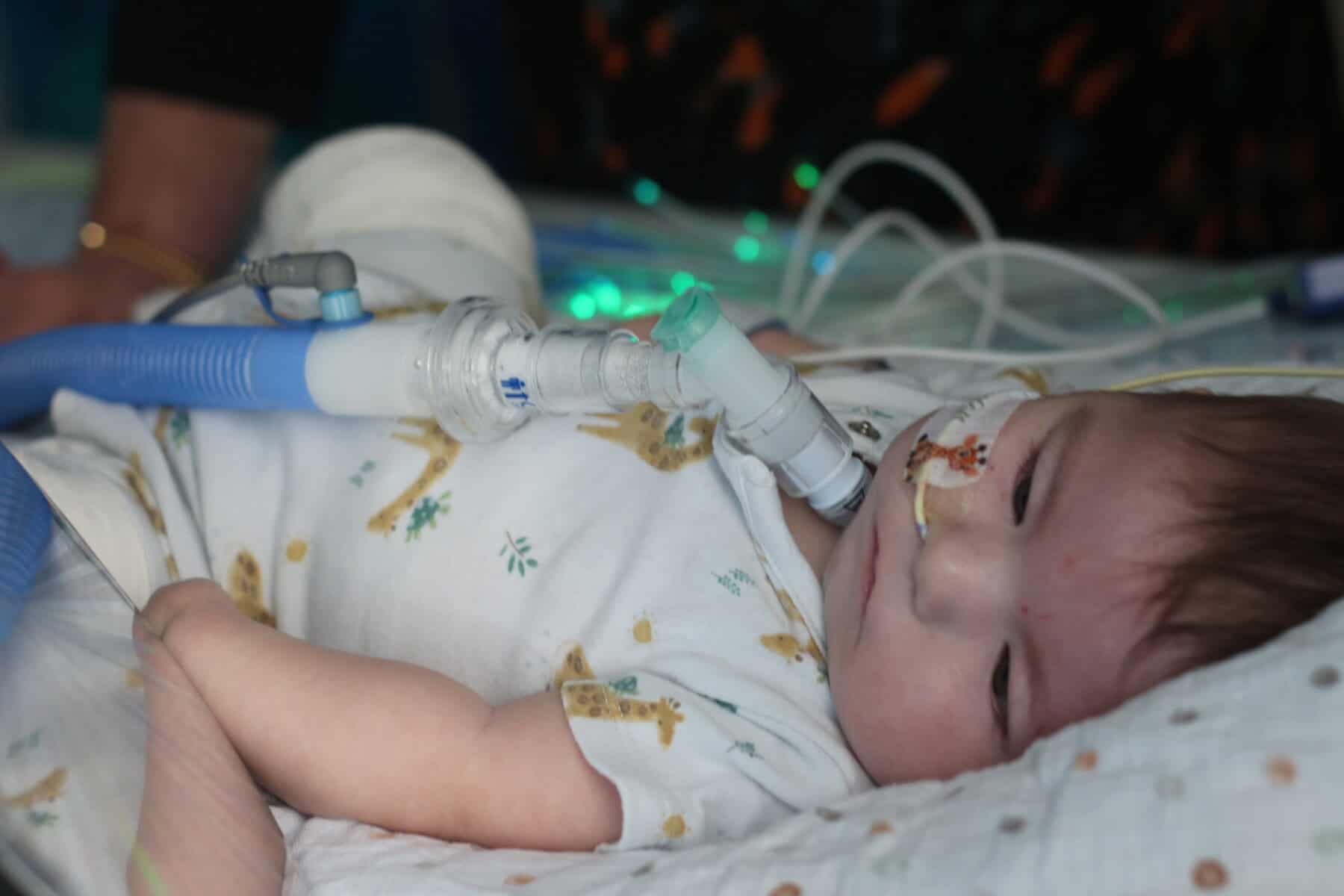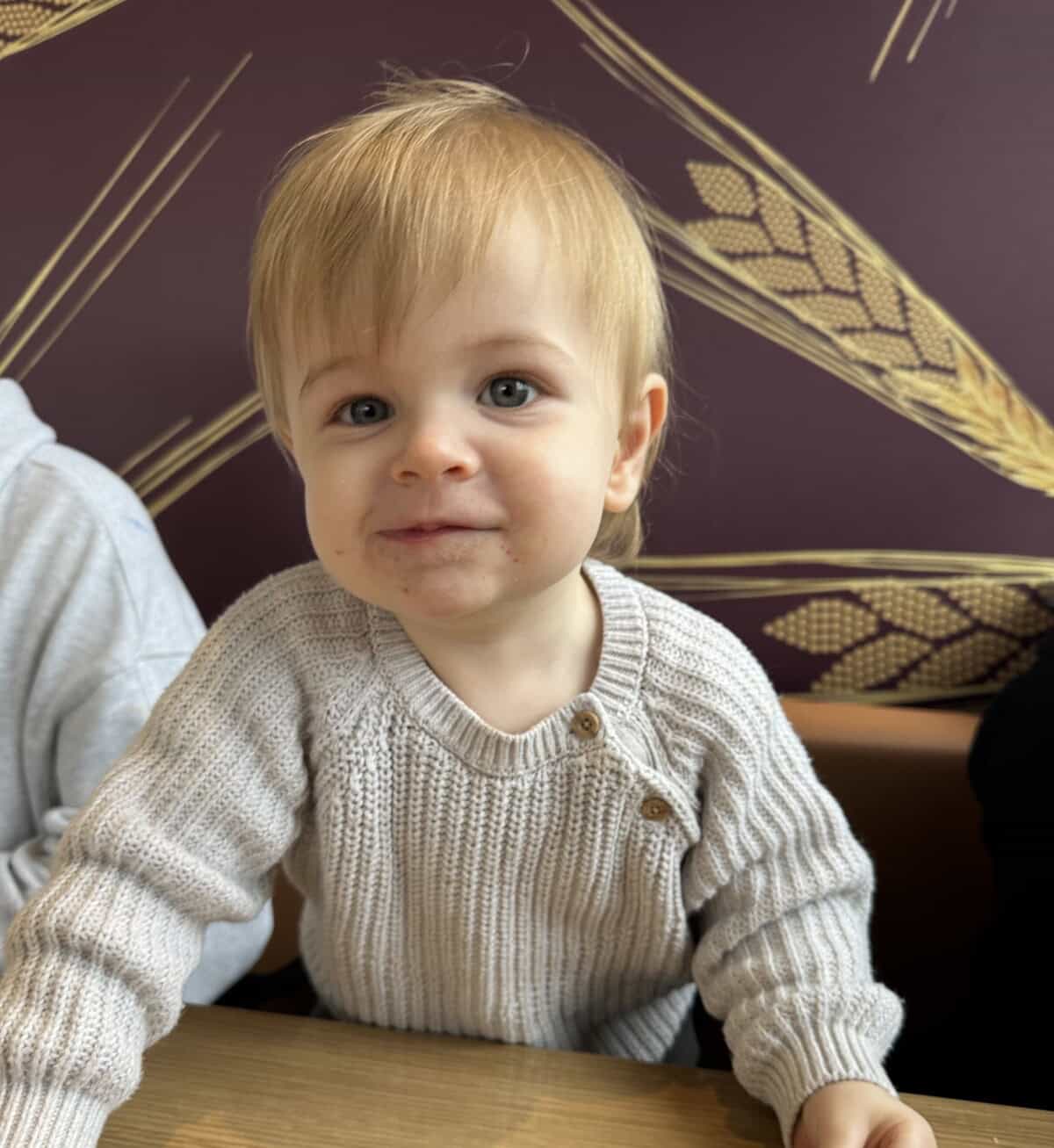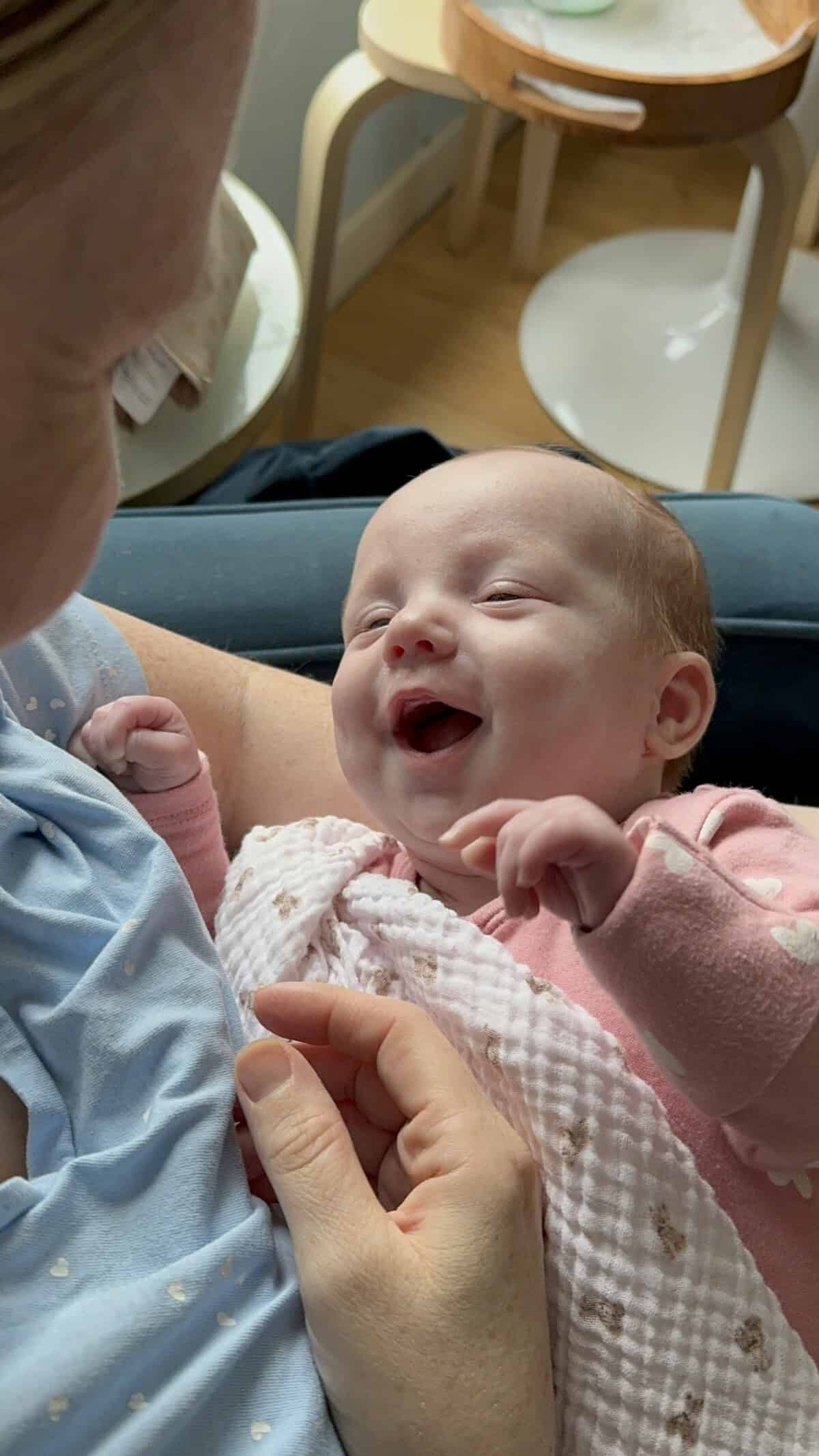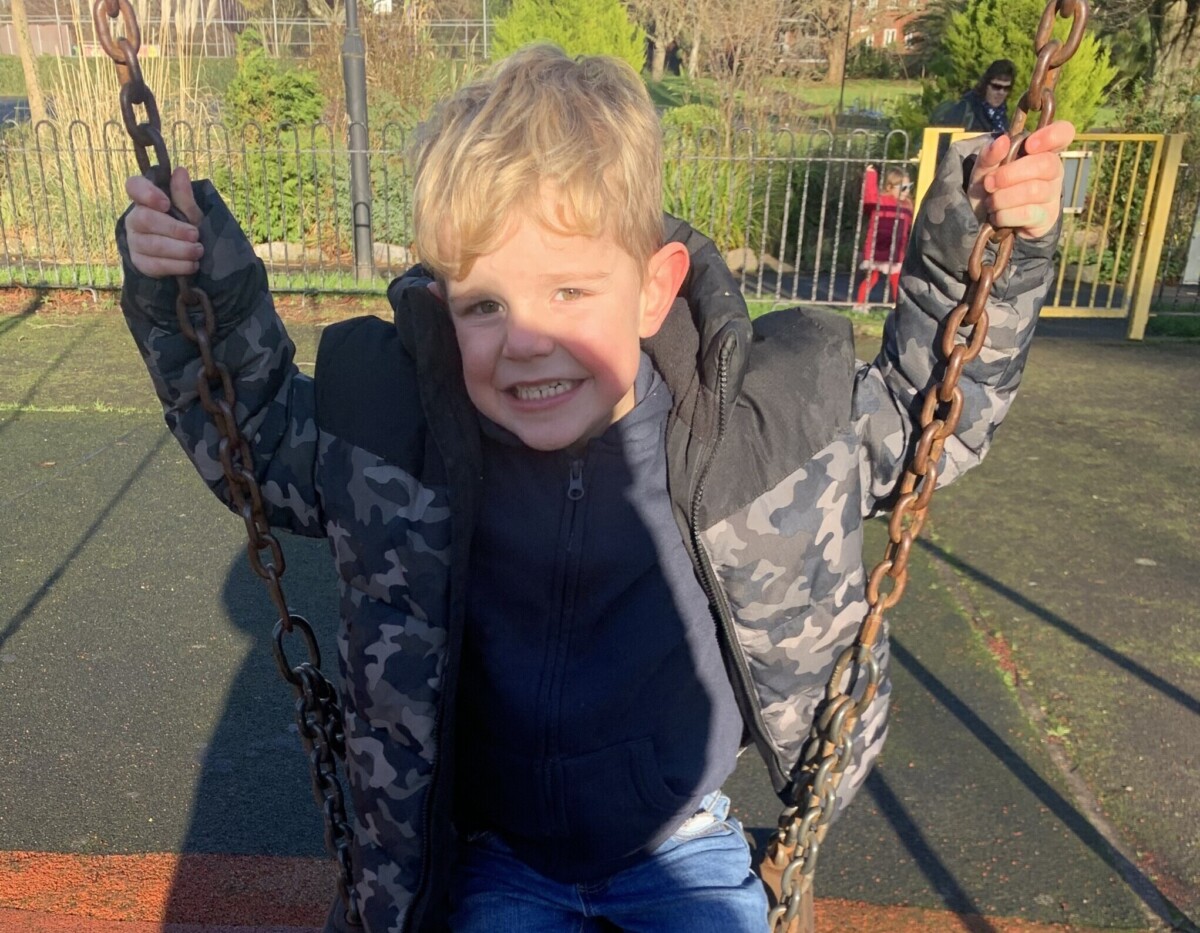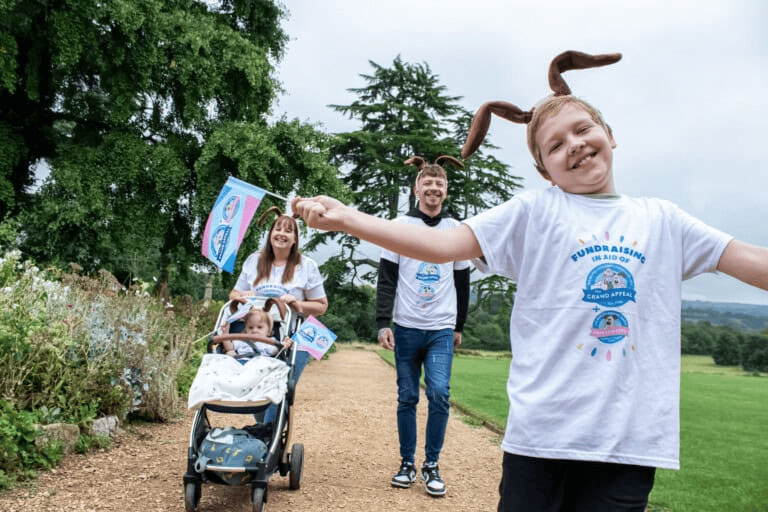Seven-month-old Preston has spent his entire life in hospital. At just a week old, he was transferred from his local hospital in Bath to St Michael’s Neonatal Intensive Care Unit (NICU). From there, he has visited various wards in Bristol Children’s Hospital, each treating a different need. He and his family have had to adapt to a life they’d never foreseen.
But Preston gets stronger with every passing day, and his parents, Paige and Lewis, are so proud of their resilient little boy. Paige tells us Preston’s incredible story.
“We were warned when I was pregnant with Preston that he would be born with bilateral talipes (also known as ‘club foot’) – a condition that means Preston’s feet are turned in and his hands are under-formed. But we didn’t know how unwell Preston really was. When he was born, we thought we’d be in hospital for a day or two. We didn’t know until they started to do more tests on Preston that he was actually a very poorly baby.
Paige, Preston’s mumIt was heartbreaking. I wouldn’t wish it on anyone, watching what he had to go through, and not really understanding what was happening. It was just one thing after another, constant bad news getting thrown at us.
We moved from our local hospital to St Michael’s NICU. We spent over 100 days there, until we moved to the Paediatric Intensive Care Unit (PICU) in Bristol Children’s Hospital for another several weeks. Then, we moved to Caterpillar Ward – which is where we’ve stayed ever since.
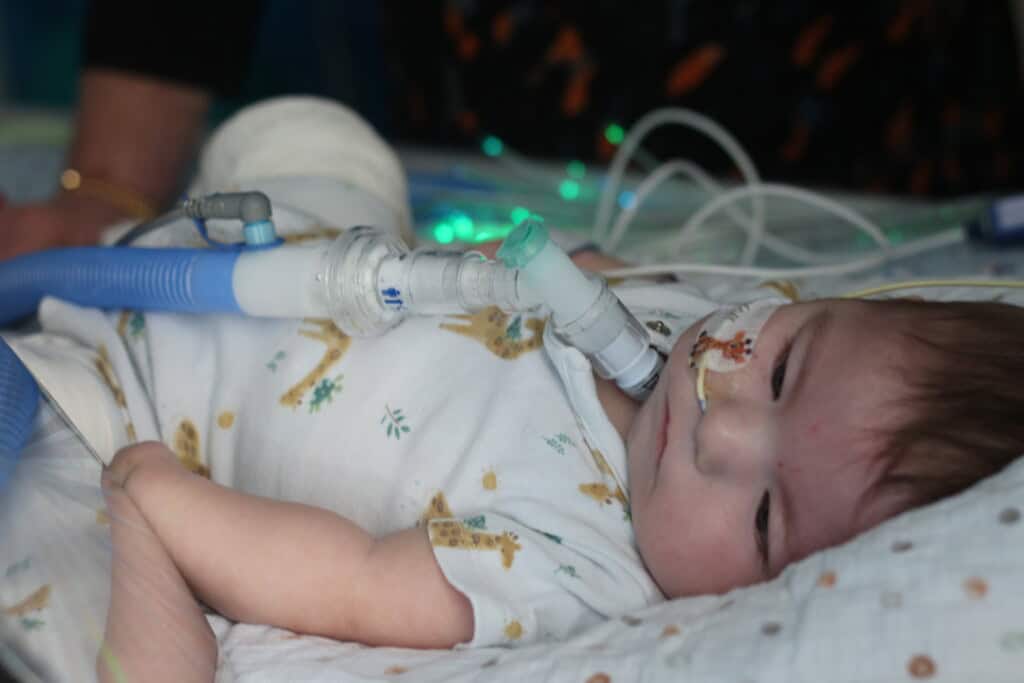
There’s no brief way to describe Preston’s illnesses or diagnoses. His main diagnosis is Moebius Syndrome, which means a range of issues that will affect his life. His face is paralysed, he can’t move his eyes side-to-side, he has hearing loss, only one working vocal cord and a narrowed airway which affects his breathing. He doesn’t swallow properly, so he has to be fed by a tube.
When he was in NICU, before he was given a tracheostomy, which is a tube that goes through his throat to help him breathe, things were really touch and go. He would crash – meaning he’d stop breathing – at least once per shift. He must’ve crashed hundreds of times. But time and time again, the incredible NICU team would sweep in and prove just how good they are by bringing him back. And Preston would bounce back each time.
The hope is, because he’s so young, that many of these things will re-wire or that he’ll learn to adapt and live with them, which we’re seeing evidence of already. He couldn’t blink in the early days – but now, he can.
In the last few weeks, we’ve seen that he’s getting stronger, he’s fighting every day. And all evidence shows that cognitively, there’s not much damage. He does have some calcium on his cranial nerve in his brain, but we’re pretty sure he’s very aware of his surroundings and that he’s growing and learning the way a baby should.
Between his paralysis, vocal cord issues and the tracheostomy, which he received in PICU, Preston has some issues with communicating. He won’t communicate in the same way most of us do, so we’ll need to learn to adapt to him – which we already are. He’s on a ventilator, and we’ve had to learn how to hold him, what’s important to know, how to change the tube in his throat – it’s taken months, but we’re so much more confident with it now.
Although, for a baby with a tracheostomy, he still manages to make a lot of noise, which is very impressive!
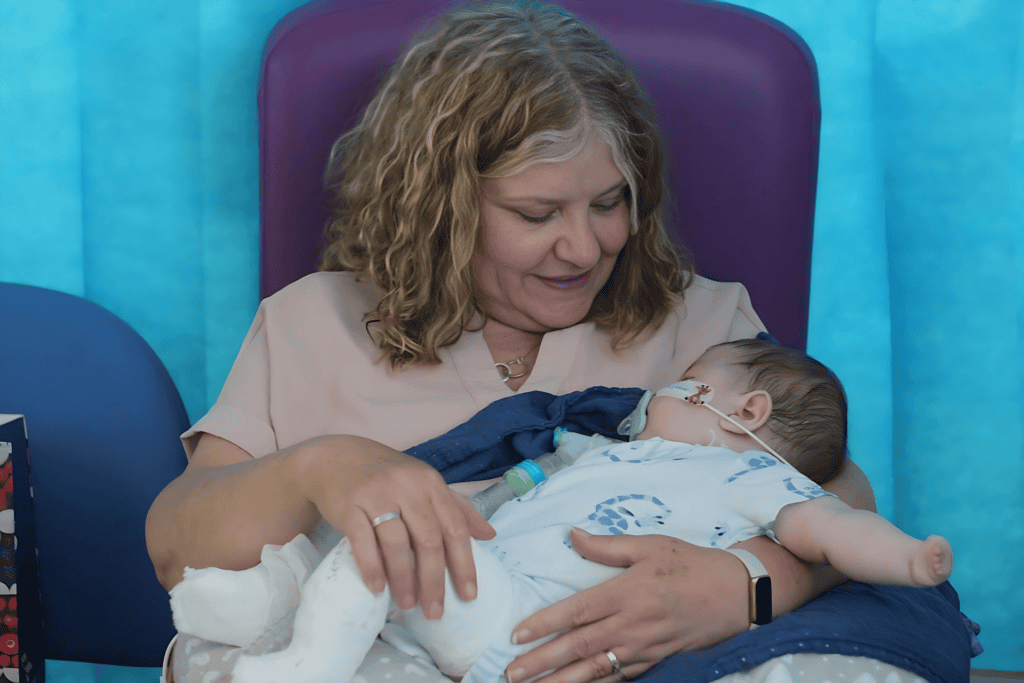
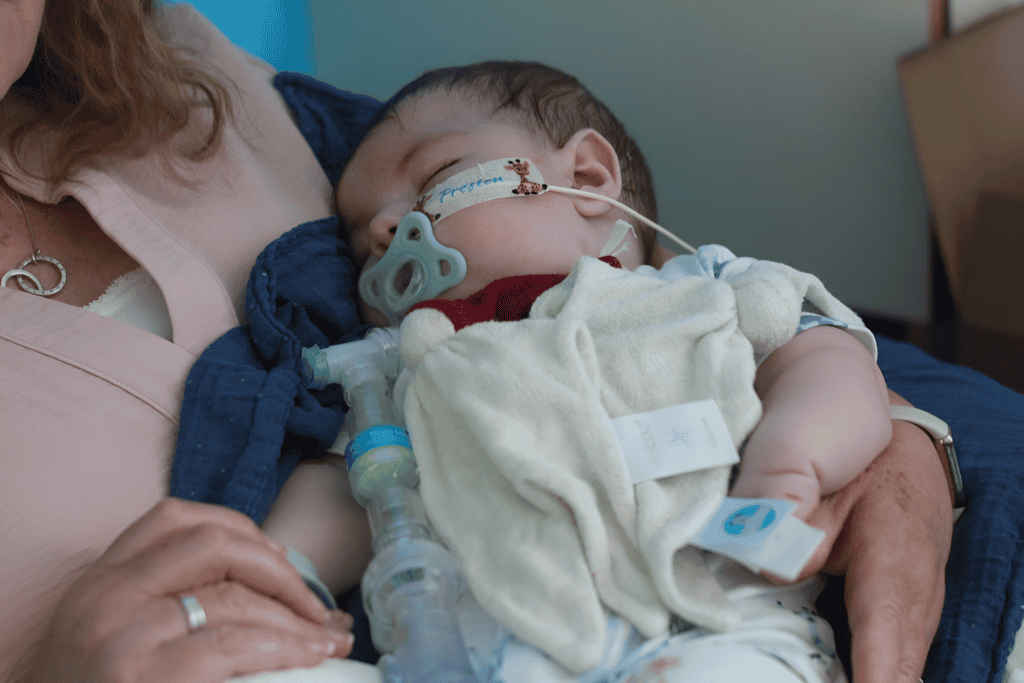
We were offered a room at Cots for Tots House when we were initially in NICU. Fortunately, we have the option to live in an Air BnB close by, so we’d already made those arrangements, but when we heard about Cots for Tots House and what it offers parents, we thought it was just incredible.
My husband, Lewis, has been amazing. To allow me to live up here to be by Preston’s side, he quit his job and essentially became a solo parent to our two-year-old, Parker. It’s really difficult, being away from him and Parker, but this way means both of our children get the love and attention they need.
Paige, Preston’s mumIt sounds weird, but our experiences across NICU and the children’s hospital has been incredible. We were heartbroken to leave NICU – after 100 days there, it started to feel like home, and the staff like family.
The NICU staff were all like aunties and uncles to Preston – they made such an effort not just with him, but with us, too. They taught us ways to feel close to Preston even when he was extremely poorly and couldn’t be held, like how to make his bed with our own sheets.
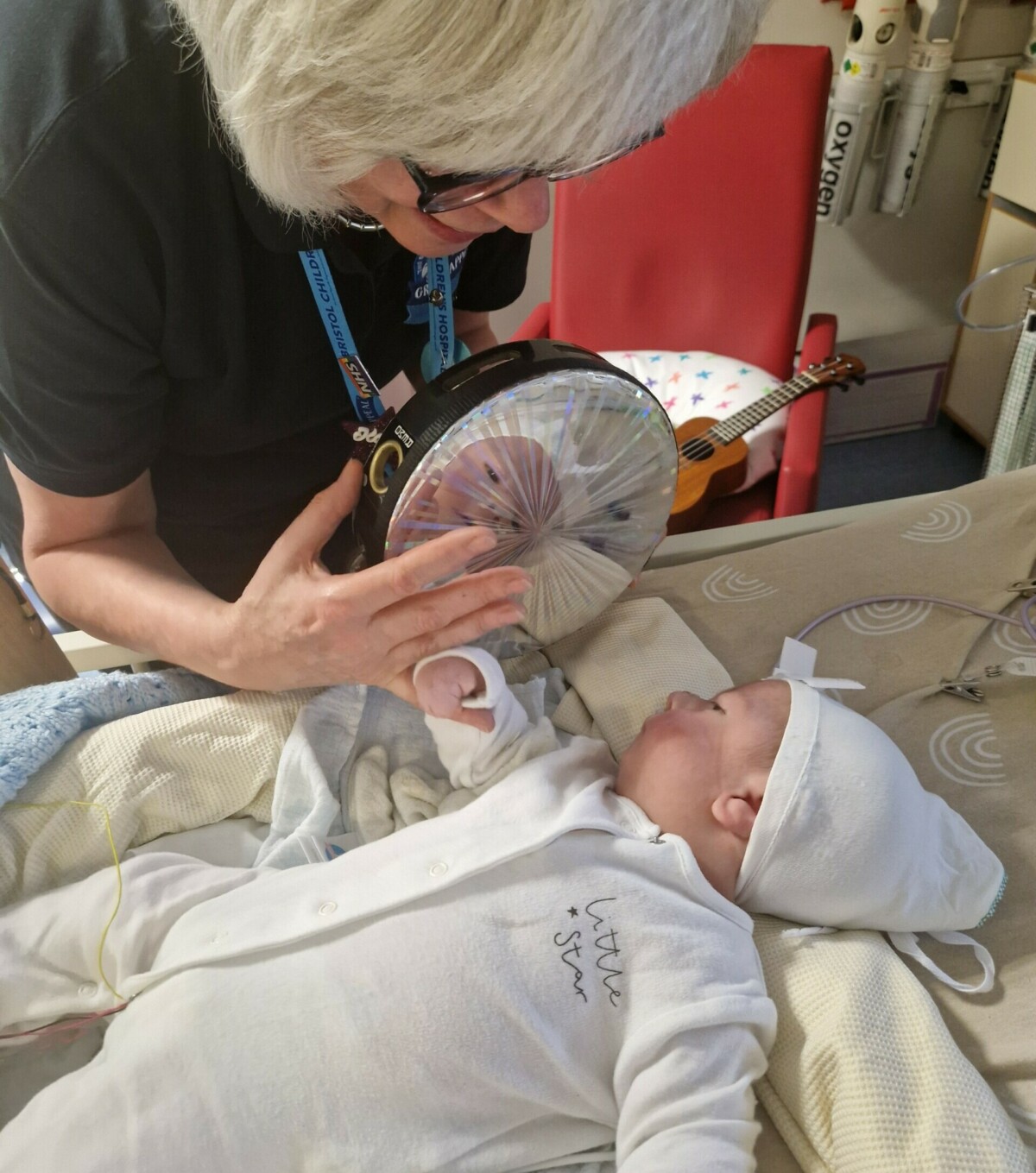
The entire unit staff are the most amazing people, but we have to give a special shout out to Naomi, Immy and Emma, who were beyond wonderful. Emma was there on the day I arrived – on my own, after being blue-lighted with a week-old baby – and she just put me at ease immediately. We can’t thank the unit enough.
The items we received in our Cots for Tots tote bag when we first entered the unit made a big difference, too. The muslins and the weighted hands were amazing at calming him down and sending him off to sleep. Preston is absolutely in love with his Miniboo – we still have it in his hospital room. We’ve got about eight now, we just collect them!
We also wrote in our ‘Your NICU Story’ diary every day, we loved it. The nurses would write in it too, write overnight updates – they’d even send us photos and videos on vCreate, a photo sharing app for hospitals, when we weren’t on the unit. We couldn’t believe all of this was funded by Cots for Tots.
Moving from NICU, where we’d made a makeshift home, was a terrifying prospect. We were on PICU, and now we’re on Caterpillar Ward, where we’ve stayed for the past few months. We were worried it wouldn’t feel the same – but the staff in Bristol Children’s Hospital are beyond incredible, too.
The Grand Appeal-funded music therapy service is vital for Preston. From sessions in NICU with Karen to regular sessions in Bristol Children’s Hospital with Claire, it’s made a huge difference to him.
The first time he’d properly engaged with anything was in NICU with Karen, which was amazing to witness. She sang to him with a ukelele and used some chimes to encourage him to interact. In NICU, we witnessed first-hand the impact of music therapy. His heart rate was always really high because he was so poorly, but every session, you could see it dropping on his stats screen, meaning he was relaxed and calm and loving it.
Families really get something out of the sessions, too. My mum often takes part in Preston’s music therapy, helping him play instruments or singing to him. She’s here with me most of the time, and she can see first-hand the positive effect it has on him.
Paige, Preston’s mumI’ve personally had a good cry with both Karen and Claire. Because not only are they there for patients, but they’re there for the families, too.
The way he interacts in his music therapy sessions is so different to how it was in the beginning, and you can see that positive change in him. As he gets bigger, stronger and better, he’s even more engaged.
Claire will always tailor the sessions to him, too. She can pick up on his moods and needs and will always work around him. Once, in PICU, Claire came by, and he really wasn’t feeling it. So, she just sat there and sang these beautiful lullabies to him. It was so lovely.
She told us she’d always ‘meet you where you are’ – and that’s what she always does. Watching Preston move his arms and legs to hit the drums, play with the chimes or sing along to the lullabies with the small squeaks he can make is wonderful.
The music therapy sessions tire him out too, which is a good thing. He’s so excited and focused that he uses a lot of his energy up, and always sleeps well afterwards. It’s so clear just how important music therapy is for patients.
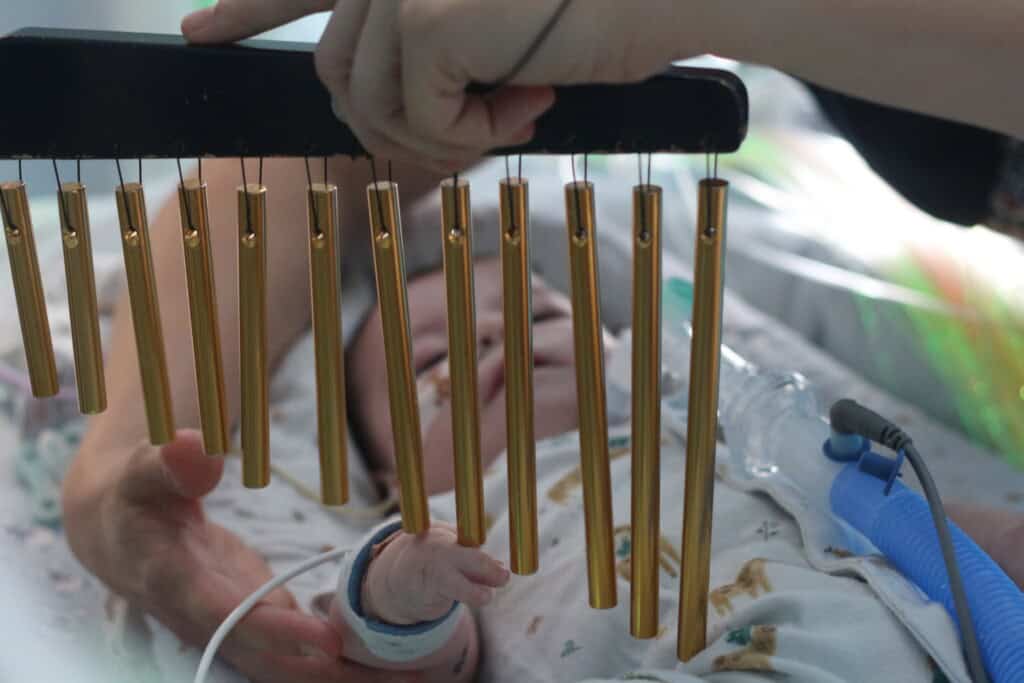
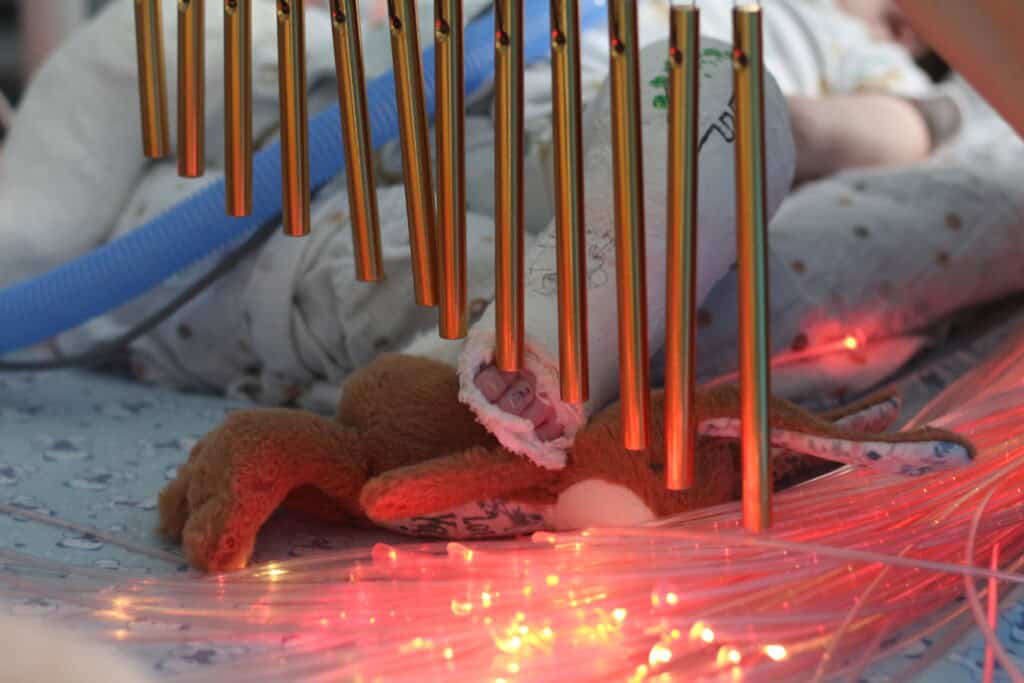
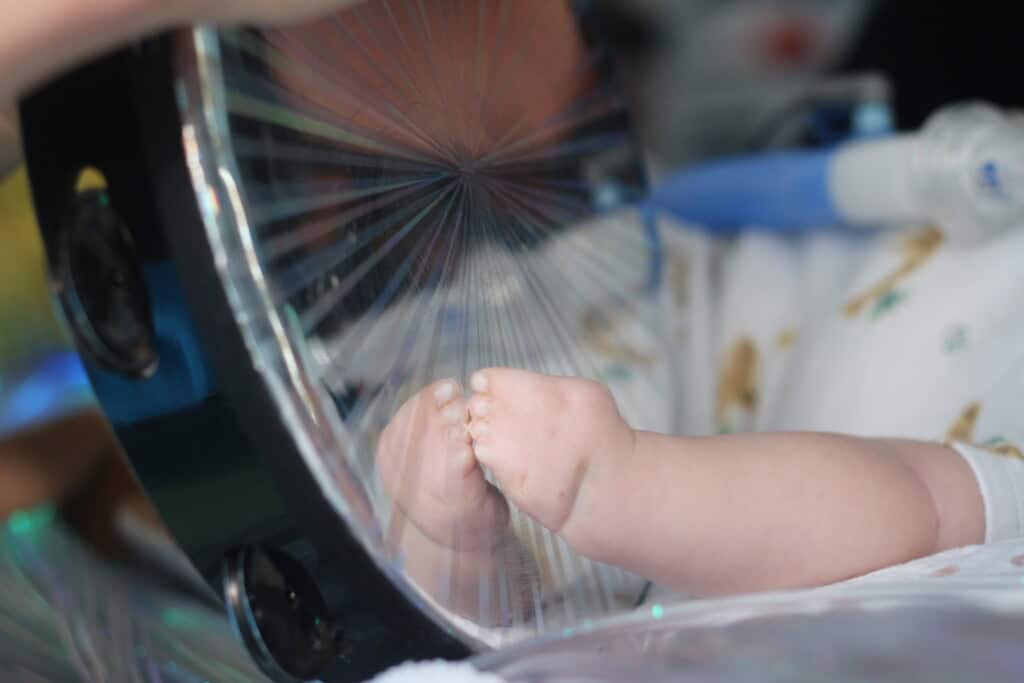
Anything that takes children’s mindsets away from the hospital environment they’re in is so vital and valuable. Music has such power to make us feel different emotions, to heal, to cheer us up, to soothe us. I can’t stress enough what a difference it’s made to Preston, and to our whole family each time we visit. Amongst a sea of traumatic experiences, the music therapy sessions were the little lights that kept us all going – especially for Preston.
We are so grateful to have it – and we can’t wait to see how Preston progresses with his sessions and what he does next. The sky is the limit for him.”
Help more children like Preston
Help us continue to provide music therapy for more children like Preston.
